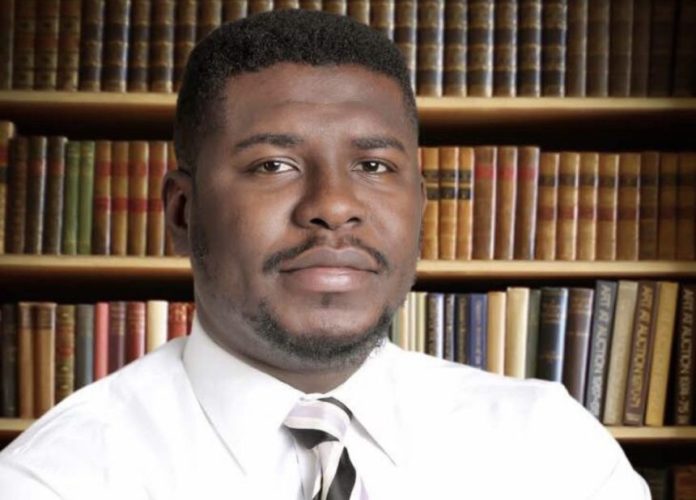Daily Law Tips (Tip 636) by Onyekachi Umah, Esq., LLM. ACIArb(UK)
Acceptance of Gift and Effect of Failure to Accept Gift.
Any person can accept gift. Every person has right to accept gift but such rights may be waived by its owner by virtue of profession, office or position. Often, by virtue of office or position and society, some people are prohibited from accepting gifts, generally or from particular persons.
In Nigerian, public servants and public office holders are prohibited from accepting gifts that may affect their judgment (in support of fight against bribery and corruption). Also, by the Rules of Professional Conduct, for lawyers and other professionals, lawyers are prohibited from accepting gifts from the opponents of their clients. Many organisations, clubs and political parties prohibit their members and staff from receiving gifts from public, customers or business associates.
“Acceptance” is a vital part of making a gift. A gift is not complete or perfect until the desired receiver accepts the gift or his appointee or guardian does so, on his behalf. Where there is an unaccepted gift, there is no gift.
1. The apex court has concluded that; “The essential thing to consider is that the gift is complete when the donee has accepted it. If that condition is satisfied the donor has no right to revoke the gift. See Dewar v. Dewar (1975) 2 All E.R. 728 at 732.” Per UTHMAN MOHAMMED, J.S.C (Pp. 23-24, paras. F-B ). Quotation in the case of ANYAEGBUNAM v. OSAKA & ORS (2000) LPELR-508(SC)
2. Generally, and in all cases, “Thus, a gift becomes valid in law once it is validly made and the donee has taken possession thereof.” Per IBRAHIM TANKO MUHAMMAD, J.C.A (Pp. 13-16, paras. B-F ). Quotation from the case of SAFETI & ORS v. SAFETI & ANOR (2006) LPELR-7579(CA)
3. Specifically, for gift of land in customarily law or Islam, “Again, this claim was premised on gift of landed property from father to his children. This is lawful, more so, when peaceful enjoyment/possession was taken by the donees. It is explicitly stated in the Ihkamul Ahkami as follows:- Translation: If a father makes a gratuitous gift of a thing to his sons big and small who was introduced by the father and the big son takes practical/actual possession of the thing given to the small one, the gift is complete. But where the big son takes actual possession of the thing given or (where even) he did, not take possession and the father (donor) dies the whole gift becomes void. On the other hand, where the big son takes possession of the thing given to him and the one given to his small brother or vis-versa, the gift is complete in both situations. See further Al-Kashnawis Ashalul Madariki, vol.3 page 88.” Per IBRAHIM TANKO MUHAMMAD, J.C.AÂ ( Pp. 13-16, paras. B-F ). Quotation from the case of SAFETI & ORS v. SAFETI & ANOR (2006) LPELR-7579(CA)
4. “Acceptance is as much as customary lay as the delivery of possession in the presence of witnesses; without it the gift is invalid, such acceptance must be made with as much publicity as possible…Actual delivery is not mere evidence of the gift but is part of the gift itself.” Per CHINWE EUGENIA IYIZOBA, J.C.AÂ ( Pp. 16-18, paras. A-C ). Quotation from ORIDO v. AKINLOLU (2012) LPELR-7887(CA)
My authorities are:
1. EKWEOZOR & ORS v. REG. TRUSTEES OF THE SAVIOUR’S APOSTOLIC CHURCH OF NIG (2020) LPELR-49568(SC)
2. UGHUTEVBE v. SHONOWO & ANOR (2004) LPELR-3317(SC)
3. ANYAEGBUNAM v. OSAKA & ORS (2000) LPELR-508(SC)
4. IMAH & ANOR v. OKOGBE & ANOR (1993) LPELR-1497(SC)
5. OKWUWA v. STATE (1964) LPELR-25195(SC)
6. CHIBUZOR & ANOR v. CHIBUZOR (2018) LPELR-46305(CA);
7. IGBOZURUIKE & ANOR v. ONUADOR (2015) LPELR-25530(CA)
8. ISIOHIA & ORS v. ELECHI (2018) LPELR-44988(CA)
9. DAVIES v. RAHMAN-DAVIES & ANOR (2018) LPELR-46557(CA)
10. ABAH v. OGBE (2012) LPELR-14842(CA)
11. JOVINCO NIGERIA LTD & ANOR v. IBEOZIMAKO (2014) LPELR-23599(CA)
12. GABDO v. USMAN (2015) LPELR-25678(CA)
13. SAFETI & ORS v. SAFETI & ANOR (2006) LPELR-7579(CA)
14. ORIDO v. AKINLOLU (2012) LPELR-7887(CA)
15. ENADEGHE v. EWEKA (2014) LPELR-24479(CA)
16. OLAJIDE v. AKINBOBOYE (2018) LPELR-46166(CA)
17. EZENWORA & ORS v. EZENWORA (2018) LPELR-43944(CA)
18. DASHE & ORS v. JATAU & ORS (2016) LPELR-40180(CA)
19. YESUFU & ORS v. OKE BAALE (OSOGBO) NUT CO-OPERATIVE INVESTMENT AND CREDIT SOCIETY LTD & ANOR (2014) LPELR-22102(CA)
#SabiLaw
#DailyLawTips
#SabiBusinessLaw
#SabiElectionLaws
#SabiHumanRights
#SabiLawOnBeatFm
#SabiLawLectureSeries
#CriminalJusticeMonday
#SabiLawVideoChallenge
Speak with the writer, ask questions or make inquiries on this topic or any other via [email protected] or [email protected] or +2348037665878. To receive our free Daily Law Tips, follow our Facebook Page:@LearnNigerianLaws, Instagram:
@LearnNigerianLaws and Twitter: @LearnNigeriaLaw
Please share this publication for free till it gets to those that need it most. Save a Nigerian today! NOTE: Sharing, modifying or publishing this publication without giving credit to Onyekachi Umah, Esq. and “LearnNigerianLaws.com” is a criminal breach of copyright and will be prosecuted.
This publication is the writer’s view not a legal advice and does not create any form of relationship. You may reach the writer for more information.
Powered by www.LearnNigerianLaws.com {A Free Law Awareness Program of Sabi Law Foundation, supported by the law firm of Bezaleel Chambers International (BCI).}





